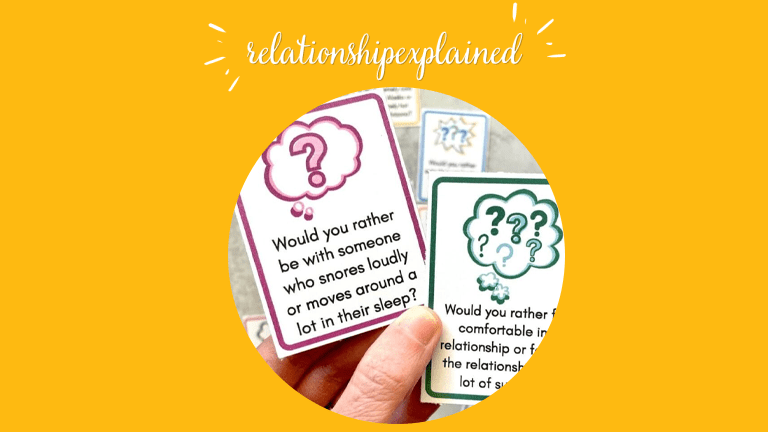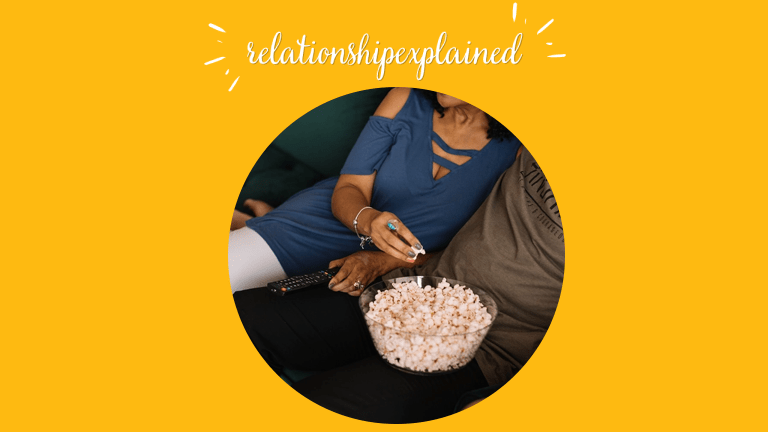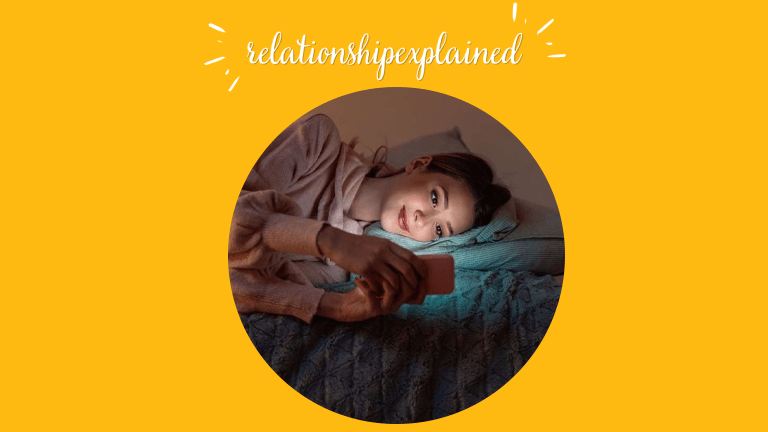Listening in Relationships
Listening in relationships is more than just a passive act; it's an active engagement that signals respect, empathy, and genuine interest in your partner's thoughts and feelings. It forms the bedrock upon which trust and intimacy are built, making it a cornerstone of any healthy relationship. Well, we'll be going over: Let's dive in. Key […]
Listening in relationships is more than just a passive act; it's an active engagement that signals respect, empathy, and genuine interest in your partner's thoughts and feelings.
It forms the bedrock upon which trust and intimacy are built, making it a cornerstone of any healthy relationship.
Well, we'll be going over:
- How can active listening techniques enhance understanding and empathy in a relationship?
- What are some common barriers to effective listening, and how can they be overcome?
- How can couples cultivate a culture of listening within their relationship to foster deeper connections?
Let's dive in.
Key Takeaways
- Listening is a critical component of successful relationships.
- Developing strong listening skills can help you better understand your partner's needs and feelings.
- Communication techniques like active listening and reflection can improve your ability to listen effectively.
The Role of Listening in Relationships
Good communication is the cornerstone of any successful relationship. Listening is a crucial component of communication that is often overlooked. Active listening involves focusing on the speaker, understanding their message, and responding appropriately. In this section, we will explore the role of listening in relationships and how it can help build trust and acceptance.
Understanding Active Listening
Active listening is a skill that involves paying attention to the speaker and providing feedback to show that you understand their message. When you actively listen, you are fully present and engaged in the conversation. This means avoiding distractions, such as checking your phone or thinking about something else. Instead, you are focused on the speaker's words, tone, and body language.
Building Trust Through Listening
Trust is a vital component of any healthy relationship. When you actively listen to someone, you show that you value their thoughts and feelings. This can help build trust and acceptance in the relationship. When you listen, you are also more likely to understand the speaker's perspective. This can help you avoid misunderstandings and conflicts.
The Impact of Non-Verbal Cues
Non-verbal cues, such as eye contact and body language, can also play a significant role in communication. When you maintain eye contact, you show that you are engaged in the conversation and interested in what the speaker has to say. Similarly, positive body language, such as nodding your head or leaning forward, can show that you are listening and understanding.
In conclusion, listening is a vital component of any successful relationship. Active listening involves focusing on the speaker, understanding their message, and responding appropriately. When you actively listen, you can build trust and acceptance in the relationship. Non-verbal cues, such as eye contact and body language, can also play a significant role in communication. By practicing active listening, you can improve your communication skills and build stronger relationships.
Developing Listening Skills
Effective communication is a vital aspect of any relationship. Listening is a critical component of communication that is often overlooked. Developing good listening skills can help improve your relationships with others. Here are some ways to develop your listening skills:
Overcoming Distractions
Distractions can prevent you from being an active listener. To overcome distractions, you should try to find a quiet and comfortable place where you can listen without interruptions. You should also avoid multitasking while listening. Multitasking can cause you to miss important details and signals from the speaker.
Practicing Empathy and Patience
Empathy and patience are essential skills for effective listening. Empathy involves understanding the speaker's perspective and feelings. Patience involves giving the speaker enough time to express themselves fully. You should try to put yourself in the speaker's shoes and listen to their words and tone of voice. You should also avoid interrupting or finishing the speaker's sentences.
Engaging in Deep Listening
Deep listening involves listening with your heart and mind. You should focus on the speaker's words, tone of voice, and body language. You should also try to understand the speaker's motivations, emotions, and beliefs. Deep listening requires you to be fully present and engaged in the conversation.
In conclusion, developing good listening skills is essential for building healthy relationships. By overcoming distractions, practicing empathy and patience, and engaging in deep listening, you can improve your communication skills and strengthen your connections with others.
Communication Techniques for Better Listening
To improve your listening skills, you need to develop effective communication techniques that allow you to engage in a conversation, understand the speaker's perspective, and respond appropriately. Here are some communication techniques that can help you become a better listener:
Effective Questioning Strategies
Asking open-ended questions is a great way to encourage the speaker to open up and share more information. Open-ended questions are those that cannot be answered with a simple "yes" or "no." They require the speaker to provide a more detailed response. For example, instead of asking "Did you have a good day?" you could ask "What did you do today?" This type of question encourages the speaker to share more information and can lead to a more meaningful conversation.
The Art of Paraphrasing and Summarizing
Paraphrasing and summarizing are two techniques that can help you demonstrate that you are actively listening to the speaker. Paraphrasing involves restating what the speaker said in your own words. Summarizing involves condensing what the speaker said into a shorter statement. Both techniques can help you clarify what the speaker meant and show that you are engaged in the conversation.
Responding Without Being Defensive
When someone shares their thoughts or feelings with you, it can be tempting to become defensive or to offer advice. However, this can be counterproductive and can shut down the conversation. Instead, try to respond in a way that shows that you understand the speaker's perspective. For example, you could say "I can understand why you feel that way" or "Thank you for sharing your thoughts with me."
Improving your communication skills takes time and practice. By using these techniques, you can become a better listener and build stronger relationships with those around you.
Challenges to Effective Listening
Effective listening is critical in any relationship, but it is not always easy. There are several challenges that can hinder effective listening. In this section, we will discuss some of the most common challenges to effective listening and how to overcome them.
Handling Emotional Conversations
Emotions can run high in relationships, and this can make it difficult to listen effectively. When you or your partner is upset, it can be challenging to focus on what the other person is saying. One way to handle emotional conversations is to take a break and come back to the discussion when you are both calmer. This can help you to listen more effectively and avoid misunderstandings.
Navigating Miscommunications and Arguments
Miscommunications and arguments can also make it difficult to listen effectively. When you and your partner are not on the same page, it can be challenging to understand each other. One way to navigate miscommunications and arguments is to restate what your partner has said to ensure that you have understood them correctly. This can help to clarify any misunderstandings and ensure that you are both on the same page.
Dealing with Distress and Passive Behaviors
Distress and passive behaviors can also hinder effective listening. When one partner is distressed or passive, it can be challenging to listen effectively. One way to deal with distress and passive behaviors is to validate your partner's feelings. This can help to put them at ease and make it easier for them to express themselves. Additionally, it can be helpful to ask open-ended questions to encourage your partner to share their thoughts and feelings.
In conclusion, effective listening is critical in any relationship, but there are several challenges that can make it difficult. By understanding and addressing these challenges, you can improve your listening skills and strengthen your relationship.
Improving Relationships Through Listening
Listening is a crucial aspect of building and maintaining healthy relationships. When you actively listen to someone, you demonstrate that you value their thoughts and feelings. This can lead to increased intimacy, connection, and relationship satisfaction. In this section, we will discuss how listening can improve your relationships and provide some tips for better listening.
Fostering Intimacy and Connection
Listening is essential for fostering intimacy and connection in relationships. When you listen to your partner, you create a safe space for them to express their thoughts and feelings. This can help build trust and emotional intimacy. Active listening also allows you to understand your partner's perspective, which can lead to a deeper connection.
Strengthening Interpersonal Relationships
In addition to fostering intimacy, listening can also strengthen interpersonal relationships. When you listen to others, you demonstrate that you value their opinions and feelings. This can lead to improved communication, increased empathy, and stronger relationships. By actively listening to others, you can build stronger relationships with friends, family members, and colleagues.
Therapeutic Approaches to Better Listening
Therapists, such as Licensed Clinical Social Workers (LCSWs), often use listening as a therapeutic approach to help clients improve their relationships. Couples therapy, for example, often involves teaching couples how to actively listen to each other. Therapists may also use techniques such as reflective listening to help clients better understand their own thoughts and feelings.
In conclusion, listening is a vital component of healthy relationships. By fostering intimacy and connection, strengthening interpersonal relationships, and utilizing therapeutic approaches to better listening, you can improve the quality of your relationships and increase your relationship satisfaction.
Frequently Asked Questions
What are the key components of active listening in a relationship?
Active listening involves giving your full attention to your partner and responding in a way that shows you understand their message. Key components of active listening in a relationship include maintaining eye contact, nodding, asking clarifying questions, and providing feedback to show that you are engaged in the conversation.
How can I improve my communication skills to be a better listener for my partner?
Improving your communication skills requires practice and patience. Start by setting aside distractions and giving your partner your full attention. Try to understand their point of view without interrupting or becoming defensive. Practice active listening and ask for clarification when needed. Be patient and understanding, and avoid jumping to conclusions or making assumptions.
In what ways does listening strengthen a couple's connection?
Listening is a crucial component of a healthy relationship. When partners feel heard and understood, they feel more connected and supported. Listening also helps partners build trust and respect for each other, which are essential for maintaining a strong and lasting relationship.
What strategies can I use to ensure I'm listening to my partner's feelings effectively?
To listen to your partner's feelings effectively, start by setting aside distractions and giving them your full attention. Avoid interrupting or becoming defensive, and try to understand their point of view. Ask clarifying questions and provide feedback to show that you are engaged in the conversation. Be patient and understanding, and avoid jumping to conclusions or making assumptions.
Can you provide examples of how to demonstrate good listening in a relationship?
Examples of good listening in a relationship include maintaining eye contact, nodding, asking clarifying questions, and providing feedback to show that you are engaged in the conversation. It also involves avoiding distractions, such as using your phone or watching TV, and setting aside time to listen to your partner.
Why is it crucial for partners to feel heard and understood in a relationship?
Feeling heard and understood is crucial for partners in a relationship because it helps build trust, respect, and a deeper connection. When partners feel heard and understood, they are more likely to communicate openly and honestly, which leads to a healthier and more fulfilling relationship.












